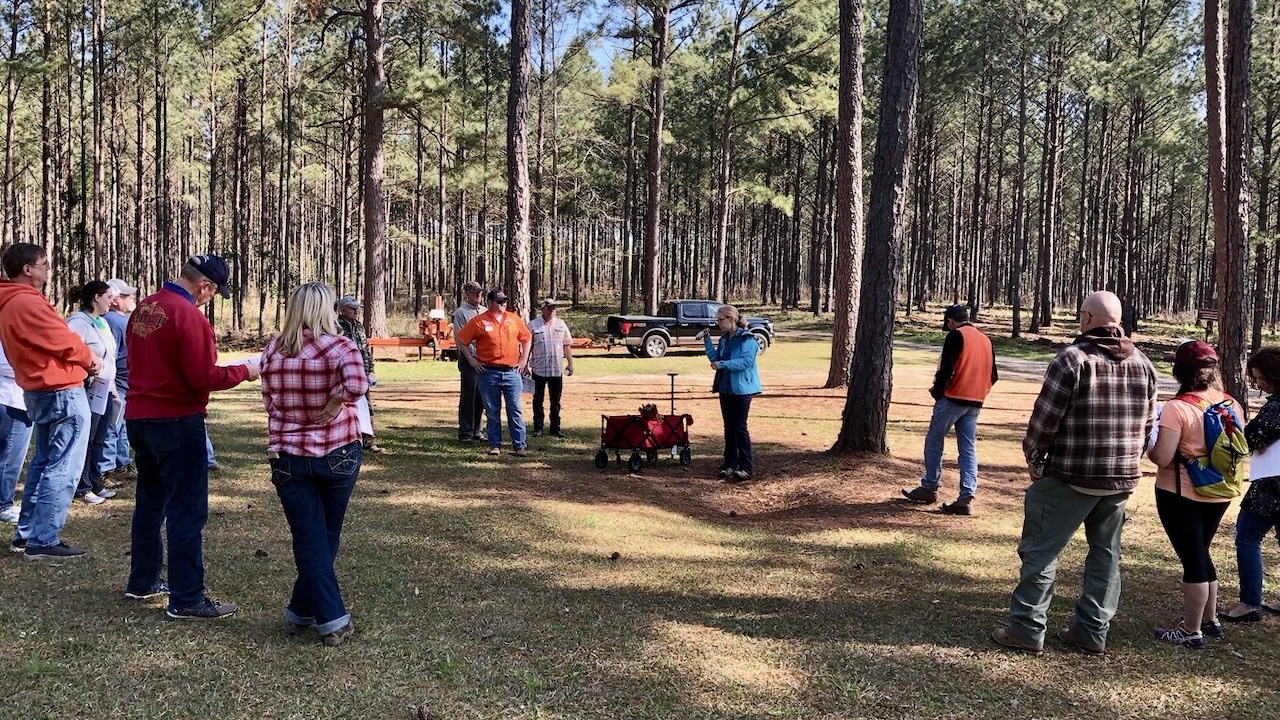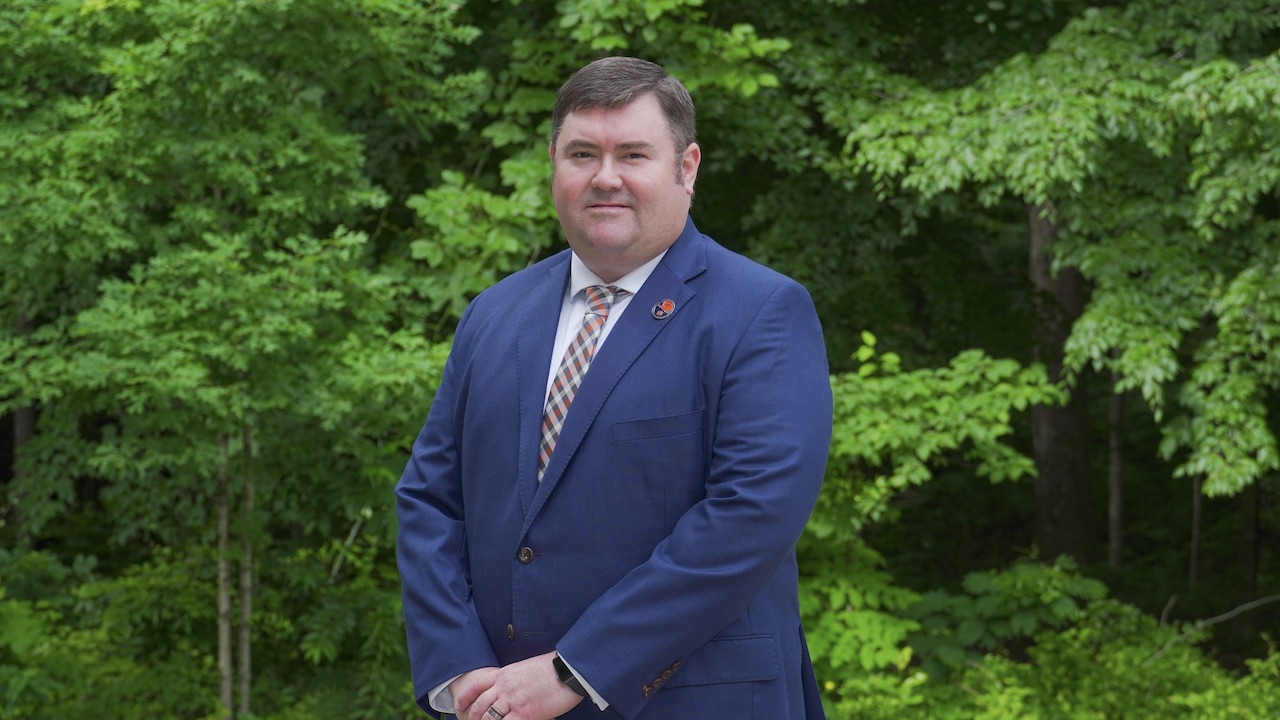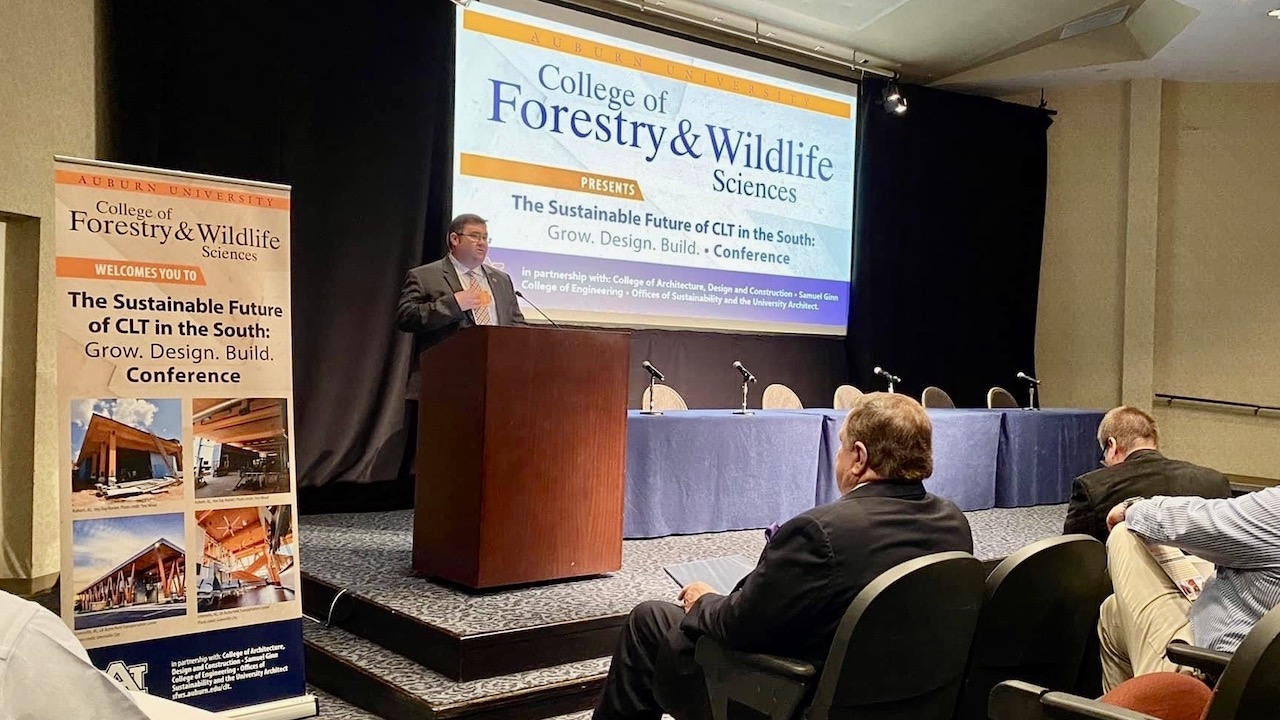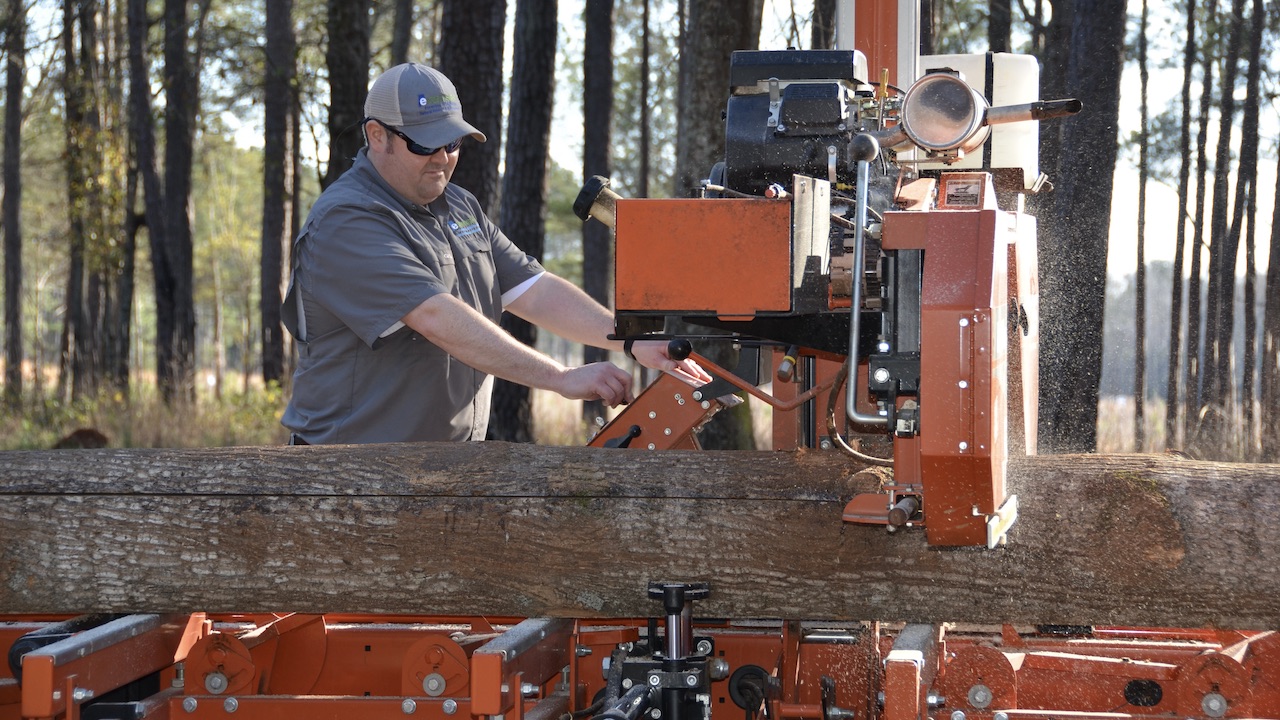content body
The Alabama Extension Forest Business Resources Program counts this as its main goal: to build educational programs utilizing science-based information to help landowners achieve their goals.
Leading that charge is Adam Maggard, Alabama Extension specialist and the Harry E. Murphy Associate Professor in the College of Forestry, Wildlife and Environment (CFWE) at Auburn University.
“The biggest thing I am driven by is helping landowners,” said Maggard. “I love working with landowners — meeting them, setting up connections and helping them be better educated on whatever information they are seeking.”
Maggard’s expertise in forestry management also positions him to serve as the coordinator for Auburn University’s upcoming cross-laminated timber (CLT) conference, “The Sustainable Future of CLT in the South: Grow. Design. Build.”
The conference is a unique opportunity to have a diverse audience in the same room, Maggard explains, as well as being truly relevant to the landowners as the topics link directly to timber markets and management of the forest.
Serving the landowners
Maggard shares his process on how he works with landowners in the program. His goal is to first understand who the landowners are — discovering their goals and their interests. He then considers how he can relate their objectives to suitability and sustainability.

Adam Maggard, Alabama Extension specialist and Auburn CFWE professor, speaking to landowners at the Forest Principles, Practices, and Stewardship for Landowners field day.
“What I mean by that is what is suitable for the landowners’ day-to-day life,” said Maggard. “They may not understand whether what they seek to achieve is suitable considering their property, resources and time commitment.
“For sustainability, we consider if their goals are sustainable, aligning with their values, as well as thinking about the sustainability of the forest resource.”
Maggard covers a broad range of topics in the Forest Business Resources Program, from general forest management and timber markets to costs of forestry practices and owning and operating small businesses.
Since its inception, the program has reached just over 9,000 folks face-to-face and much more not in person but via publications, online resources and tools, and virtual or over-the-phone meetings.
“In 2023 alone, there were over 672,000 forested land acres either owned or managed by the people attending our workshops, with a total of two million acres of Alabama forest land impacted since the program began,” said Maggard.
Alternative means of income generation
Alabama Extension noticed landowners sought alternative means to generate revenue from their property to help their livelihoods, reduce costs or for tax purposes, beyond participation in fluctuating timber markets.
Maggard and his team answered the call by developing this flexible program.
Some of the alternative revenue sources for property owners include offering recreational leasing, such as hunting; selling pine straw; working with silvopasture, which involves running livestock with their timber; and mixing their property use with other agricultural systems.
Landowners connect with Maggard in a multitude of ways. Often, regional Extension agents throughout the state are the first to make contact with landowners — there are seven agents, covering eight to 10 counties each, solely focused on forestry, wildlife and natural resources topics and issues.
Maggard creates programs based on landowners’ needs, often taking the form of a workshop, which can be an evening program, a multi-day workshop or a field tour of the landowner’s property with demonstrations.
Spreading the word on market trends
Part of helping established and aspiring landowners achieve their goals includes educating them on market trends that can impact their businesses. Maggard most often speaks on timber markets and the cost of forestry practices.

Adam Maggard, Alabama Extension specialist and Auburn CFWE professor, supports landowners and the state’s timber industry through Extension’s Forestry Business Resources Program.
“Timber markets are very dynamic,” said Maggard. “I share the current situation of the timber market, expectations for the future and what is impacting different markets. I tell them ‘Depending on X, Y and Z, these are the trends to look for in your specific market and on state, regional and global levels.’"
Maggard calls his education of the cost of forestry practices “unique” because he not only relays the costs of forestry practices, but delves into the factors affecting these costs — and he has the data to prove it.
Starting in 1952, Extension launched a survey of 14 states in the southern region, looking at the cost of forestry management for the year. By the 1980s, the survey was regularly distributed every other year to landowners, industry professionals and government agencies, but was cumbersome for recipients to complete.
Collaborating with the Forest Landowner Foundation, Maggard has modernized the survey, resulting in more participants in recent years, and, thus, increased and more thorough data to share with landowners and industry.
“Landowners and industry professionals alike use the survey as a benchmark of forestry practices and costs to inform their decision-making,” said Maggard.
Coordinating the CLT conference
Maggard is the coordinator of the upcoming conference, “The Sustainable Future of CLT in the South: Grow. Design. Build.,” focusing on cross-laminated timber (CLT) research, trends and developments specific to the South. He sees this conference directly tying into the Forest Business Resources Program.
“Everything I try to do is relatable to the program,” said Maggard. “The conference ties directly to timber markets and forest management, in terms of wood quality needs or species desired for mass timber buildings.”

Adam Maggard, Alabama Extension specialist and Auburn CFWE professor, speaking at the first AU CLT Conference in April 2022.
“Landowners are the ones producing raw materials and resources needed to create CLT, so this conference definitely relates to them.”
The conference, to be held this Oct. 7-9 in Auburn, is presented by the CFWE in collaboration with Auburn’s new Mass Timber Collaborative, a partnership between the CFWE, the Samuel Ginn College of Engineering and the College of Architecture, Design and Construction.
Given the broad spectrum of expertise involved, Maggard said the conference offers a unique opportunity to have a diverse audience in the same room, from landowners, forestry professionals, engineers and architects to contractors, insurance companies, economic development professionals and educators.
“This audience spanning all sectors of the CLT supply chain can learn and network together to advance CLT and mass timber in general,” said Maggard.
Forestry Opportunities
The College of Forestry, Wildlife and Environment offers several avenues to support forestry education.
- Learn more about the Forest Business Resources Program
- Learn more about “The Sustainable Future of CLT in the South: Grow. Design. Build.
- Learn more about the Auburn Mass Timber Collaborative
Interested in Forestry?
Earn a degree at the College of Forestry, Wildlife and Environment.
Connect Now




